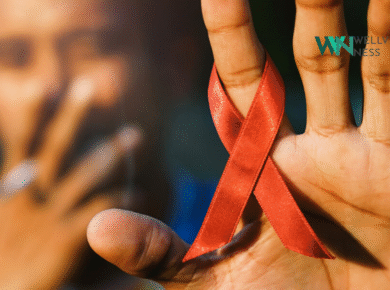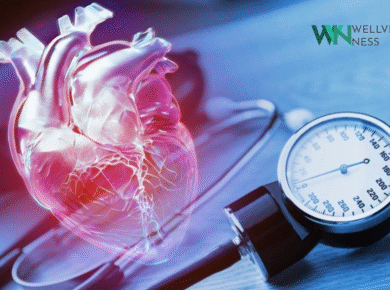Diabetes is a growing global health concern that affects how your body regulates blood sugar (glucose). Whether you’re managing diabetes or trying to prevent it, understanding its causes, symptoms, treatment, and especially your diet, is key to living a healthier life.
Table of Contents
What is Diabetes?
Diabetes is a chronic condition where your body cannot produce or properly use insulin, a hormone that regulates blood sugar. When glucose builds up in your blood instead of being used for energy, it can lead to serious health problems over time.
Types of Diabetes
1. Type 1 Diabetes
- Autoimmune disorder; the body attacks insulin-producing cells.
- Typically appears in childhood or adolescence.
- Requires lifelong insulin therapy.
2. Type 2 Diabetes
- Most common type; often linked to lifestyle factors.
- Body becomes resistant to insulin or produces it inefficiently.
- Can often be managed through diet, exercise, and oral medication.
3. Gestational Diabetes
- Occurs during pregnancy and usually resolves after childbirth.
- Increases risk of type 2 diabetes later in life.
4. Prediabetes
- Blood sugar levels are higher than normal, but not yet in the diabetic range.
- A critical stage where lifestyle changes can reverse the condition.

Common Symptoms of Diabetes
- Frequent urination
- Excessive thirst
- Unexplained weight loss
- Blurry vision
- Fatigue
- Slow wound healing
- Tingling or numbness in hands and feet
Causes and Risk Factors
- Genetics
- Obesity
- Unhealthy diet
- Lack of exercise
- Hormonal changes (in pregnancy)
- Family history of diabetes
Diagnosis
- Fasting Blood Sugar (FBS)
- HbA1c test
- Oral Glucose Tolerance Test (OGTT)
- Random Blood Sugar Test
Treatment and Management
1. Lifestyle Adjustments
- Healthy eating habits
- Regular exercise (at least 30 minutes daily)
- Stress management
- Weight control
2. Medications
- Type 1: Insulin injections or pump
- Type 2: Oral medications like Metformin, sometimes insulin
3. Regular Monitoring
- Glucometer for home testing
- HbA1c tests every 3–6 months
- Blood pressure and cholesterol monitoring
Diabetes Diet: What Should Diabetic Patients Eat?
Diet plays a critical role in controlling blood sugar levels. Here’s a guide to help diabetic individuals make better food choices.

Best Foods for Diabetics
- Whole grains (brown rice, oats, quinoa)
- Leafy greens (spinach, kale, broccoli)
- Non-starchy vegetables (cauliflower, cucumber, zucchini)
- Legumes and lentils
- Fatty fish (salmon, sardines, mackerel)
- Nuts and seeds (almonds, flaxseeds, chia)
- Low-fat dairy products
- Fresh fruits in moderation (berries, apples, pears)
Foods to Avoid for diabeitcs
- Sugary drinks (sodas, sweetened juices)
- Refined carbs (white bread, white rice)
- Fried and processed foods
- Saturated fats and trans fats
- Sugary snacks and desserts
- Alcohol (limit or avoid, especially sweetened varieties)
Meal Planning Tips
- Eat smaller portions more frequently
- Balance carbohydrates, protein, and healthy fats
- Choose low glycemic index (GI) foods
- Don’t skip meals—especially breakfast
- Stay hydrated with water or unsweetened drinks
Complications of Untreated Diabetes
- Heart disease and stroke
- Kidney damage
- Vision loss (diabetic retinopathy)
- Nerve damage (neuropathy)
- Foot ulcers or amputations
- Frequent infections
Prevention Tips
- Stay active
- Eat a balanced, low-sugar diet
- Maintain a healthy weight
- Get regular health checkups
- Quit smoking and limit alcohol
Conclusion
Diabetes may be a lifelong condition, but with proper care, including a healthy diet, regular exercise, and medical support, it is entirely manageable. Whether you’re living with diabetes or trying to prevent it, making informed lifestyle choices is your strongest defense.
Early diagnosis, regular monitoring, and eating smart can transform your health and minimize the risk of complications.
Frequently Asked Questions (FAQs) About Diabetes
1. What is the main cause of diabetes?
The main causes vary by type:
Type 1 diabetes is caused by an autoimmune reaction where the body attacks insulin-producing cells.
Type 2 diabetes is mostly due to insulin resistance, often linked to obesity, poor diet, and inactivity.
Gestational diabetes is caused by hormonal changes during pregnancy.
2. Can diabetes be cured?
There is no permanent cure for diabetes, but it can be effectively managed. In some cases of type 2 and prediabetes, lifestyle changes such as a healthy diet, weight loss, and regular exercise can reverse or significantly reduce symptoms.
3. What are early signs of diabetes?
Common early signs include:
Frequent urination
Excessive thirst
Fatigue
Unexplained weight loss
Blurry vision
Increased hunger
If you notice these symptoms, consult a doctor for testing.
4. Can children develop diabetes?
Yes. Type 1 diabetes is often diagnosed in children and teens. Type 2 diabetes is also becoming more common in children due to rising obesity rates and sedentary lifestyles.
5. What foods should diabetics avoid completely?
Diabetics should avoid or strictly limit:
Sugary drinks (soda, fruit juices)
Refined carbs (white bread, pastries)
Fried foods
Full-fat dairy
Processed snacks and sweets










